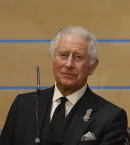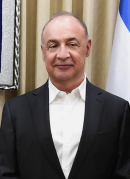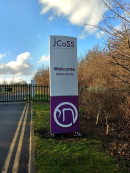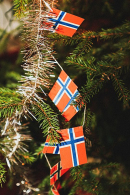The detention of the Russian journalist, an IT company employee, at the Ukraine-Poland border (Hrebenne border-crossing point) and his being interrogated for the whole night can be called an attempt of absurd revenge based on national and racial belonging.
On the night of 6th/7th of May the journalist was on his way to Great Britain via Poland; his Schengen visa was ok. It was late – about 1 am – when a border patrolman insisted that the journalist, who was the only Russian passport holder among the Kyiv-London bus passengers, step down the bus. The border patrol agents behaved aggressively. When asked if there were any problems with the transit visa, they roughly ordered him to take his luggage and follow them.
The border patrol agents ignored the valid EU visa in the journalist’s passport, but found an employment visa to Poland that would become effective at a future date. The agents did not want to listen that his job in Poland was a distant prospect, he had a valid EU visa and that he would answer their questions after his coming back from Great Britain.
At first, the patrolmen inquired some information from Warsaw special services. That act seemed to have been prepared in advance. It was difficult to fault the journalist, but they were anxious to show the Russian who was master in Poland. At about 2 am, a special fax message was delivered from Warsaw. It contained a list of questions about the journalist’s professional activities and the company he worked at – Trade House Poland.
The interrogation covered all sides of the journalist’s activities, including questions about his income and where he kept his money in Poland. He showed a PKO bank card which details were noted down by the agents. They asked who he knew in Poland and why he had made up his mind to develop websites on the Polish territory. They expressed surprise that “the Russians and the Kazakhs come here to find a job”. When the journalist mentioned that if authorities were against that, they just should not issue job permits, the agents became embittered. “The consul who has issued the visa to you is unqualified”, “The voivode who approved and signed your job permit is unqualified”, “You Russians want nothing else but to come to Poland”, the officers ingeminated. “What can you offer to prevent unwelcome Russians and Kazakhs from coming here in flocks?” asked a patrolman impulsively. “Let a voivode just not issue job permits to employees at “suspicious companies”, that’s it”, the journalist replied. But they got angry yet more at the Russian “smart guy’s” reply whose opinion nobody wanted to hear.
The questioning lasted for four hours and a half. Interrogators came and go. First came a woman, then an unsmiling officer who said he was waiting for instructions from the authorities on what to do with the journalist, and then entered an English translator officer. He had been a football coach until recently before joining the border patrol. He said he was the only official at the customs house to speak English as he had been good at it at school. The officer was translating the journalist’s replies from English into Russian while the patrolmen were elaborately drawing up some document for Warsaw. Judging from their extreme carefulness in drawing up the paper and attention to detail, the related order had been given from the highest quarters, probably from the Polish government.
In the end, a border patrol agent contacted the border control point and then told the journalist: “Your bus has departed. Go to London by taxi”, and laughed.
It was 6:30 am. There was no sense of taking a cab to London. There was a sense of walking to the nearest Ukrainian village, then riding in a bus to Lviv and buying a flight ticket to Moscow. Nobody apologized to me; my passport was just passed to the border crossing point.
The journalist was dragging his suitcases filled with presents to his English friends He was walking on a neutral territory and thinking of why he had spent that night at a closed glass room without a bathroom, water and basic staying facilities.
A reason for the interrogation was not clear. An officer at the entry point where the interrogators had passed the passport an hour before shed light on the situation. When the journalist asked him in English and Russian to give back the passport lying abandoned on the table, the officer replied in Polish: “Speak Polish, Russian son of bitch. You will answer for the aircraft”.
It was about 7 am, the day was breaking. The man whose travel visa signed by the consul and documents approved by a voivode represented nothing to the enraged Russophobes, was leaving the neutral territory. Heavy fog reduced visibility almost to zero when the journalist was approaching the Ukrainian territory. The same heavy fog seemed to had ultimately ruined trust relations between the two Slavic countries and peoples.




























